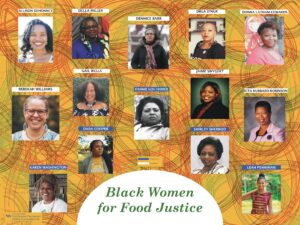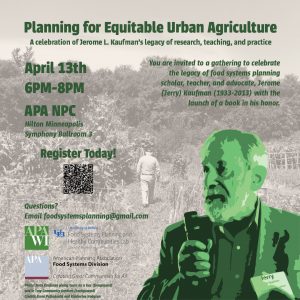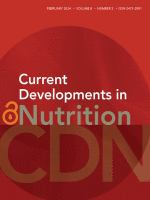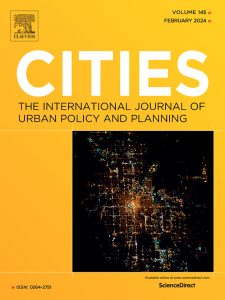As long as cities have existed in the United States, there have been residents growing food for sustenance. But agriculture is not only a source of survival, it is a site of resistance. Particularly for Black communities in the United States, the process of caring for and cultivating the land is seen as a liberatory act. Urban agriculture, when employed in pursuit of equity, has the potential to stabilize neighborhoods, improve public health, and address food apartheid within cities. A planning report co-produced by graduate students (at the University at Buffalo), community partners (Juneteenth Agricultural Pavilion in Buffalo, NY), and policy partners (County of Erie, NY) illustrates how urban agriculture can be used as a lever for advancing equity.
The report Growing Toward Equity aims to:
1. Promote and help sustain equitable urban agriculture in East Side neighborhoods; especially grounded in ideas, histories, and practices of Black growers.
2. Gather, analyze, synthesize, and provide information about urban agriculture.
3. Develop local government policy and planning strategies for the protection and expansion of urban agriculture.
The report will be of interest to community educators and food system educators interested in working together to advance food equity. Production of the report was supported by Growing Food Policy from the Ground Up project, Foundation for Food and Agricultural Research (FFAR), UB Food Lab, and its partners.

 Black women have used, controlled, and shaped food spaces to their families’ and communities’ advantage for hundreds of years in the United States. From the first enslaved women brought to New Amsterdam in 1619 to women today, powerful Black women have used food as a lever for social transformation. Black women’s food-related agency has spanned from the kitchen table to policy circles, though this agency is often overlooked in research, policy, and popular discourse. This Juneteenth we reflect on the historic contributions and present-day work of Black women to advance food justice in East Buffalo and beyond. Read the full article
Black women have used, controlled, and shaped food spaces to their families’ and communities’ advantage for hundreds of years in the United States. From the first enslaved women brought to New Amsterdam in 1619 to women today, powerful Black women have used food as a lever for social transformation. Black women’s food-related agency has spanned from the kitchen table to policy circles, though this agency is often overlooked in research, policy, and popular discourse. This Juneteenth we reflect on the historic contributions and present-day work of Black women to advance food justice in East Buffalo and beyond. Read the full article 

 In this article in ELSEVIER, the authors describe how the use of social infrastructures impacts food security and nutrition equity in a majority Black and urban community in the United States.
In this article in ELSEVIER, the authors describe how the use of social infrastructures impacts food security and nutrition equity in a majority Black and urban community in the United States.
 Do you know of a local jurisdiction that has adopted or updated policies related to urban agriculture or land access in the past ten years? The UB Food Lab is updating the municipal policy database
Do you know of a local jurisdiction that has adopted or updated policies related to urban agriculture or land access in the past ten years? The UB Food Lab is updating the municipal policy database